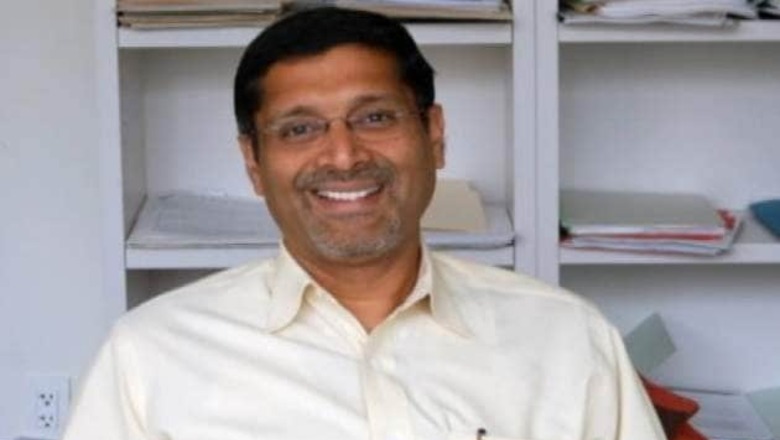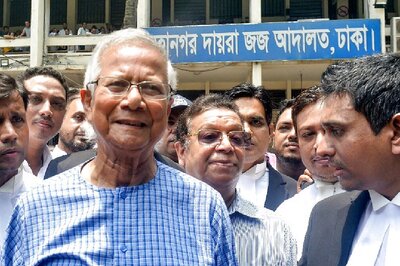
views
New Delhi: US-based economist Arvind Subramanian is poised to be named as chief economic adviser to Prime Minister Narendra Modi's government, two sources at the finance ministry said on Friday.
If confirmed, the appointment would bring a second economist of international renown to a key policy post following the naming of former International Monetary Fund chief economist Raghuram Rajan as Reserve Bank of India chief last year.
Subramanian, a senior fellow at the Peterson Institute for International Economics, was recommended to the post by Finance Minister Arun Jaitley. Cabinet-level approval is expected to follow.
"He is likely to be appointed soon," one of the sources said.
Modi stormed to a general election victory in May with a pledge to lift the economy out of its worst slowdown in a quarter of a century and put to work the one million young people who enter the workforce each month.
The nationalist leader has abolished a Soviet-style Planning Commission, but made an otherwise slow start on economic reforms, disappointing some backers who had hoped that he would take more decisive action to promote a recovery.
In a major speech last week, Modi complained that he had to contend with competing government "fiefdoms". Bringing in outside experts capable of challenging an entrenched bureaucracy could help him implement his policy agenda.
IMF veterans
Subramanian was educated in India and Britain and went on to serve at the IMF and at the forerunner to the World Trade Organization, before taking senior academic posts at Harvard and Johns Hopkins universities in the United States.
Recently, he criticised the Indian government's decision to derail a WTO deal struck last year to streamline trade procedures by tying it to a separate controversy over food subsidies.
"Yes, supporting agriculture is valid, but no, the tactic may be less so," Subramanian wrote in a commentary at the end of July.
He also criticised Jaitley's maiden budget for being too optimistic in its revenue forecasts, saying it had failed to come clean on its fiscal accounting, and that it lacked timelines for passing crucial tax and subsidy reforms.
"More importantly, though, transparency and credible numbers evoke confidence; unreliable numbers will eventually elicit cynicism," he wrote in a column.
Jaitley stood by a fiscal deficit target of 4.1 per cent of gross domestic product for the current fiscal year to March 2015, even though the deficit had already hit nearly half that figure by the time he rose to address parliament last month.
If confirmed for a three-year term, Subramanian would be Jaitley's top adviser - a position vacant since Rajan moved to the Reserve Bank of India last fall and started a shift to a more modern, Western-style policy of inflation targeting.
He would be responsible for producing the annual Economic Survey - a document on the state of economy that underpins the drafting of the budget - and a mid-year economic update that is presented to parliament.
"Given his background and work experience in the IMF and other places, I am sure, he would be a very good replacement," said NR Bhanumurthy, an economist at National Institute of Public Finance and Policy, a Delhi-based think tank.




















Comments
0 comment